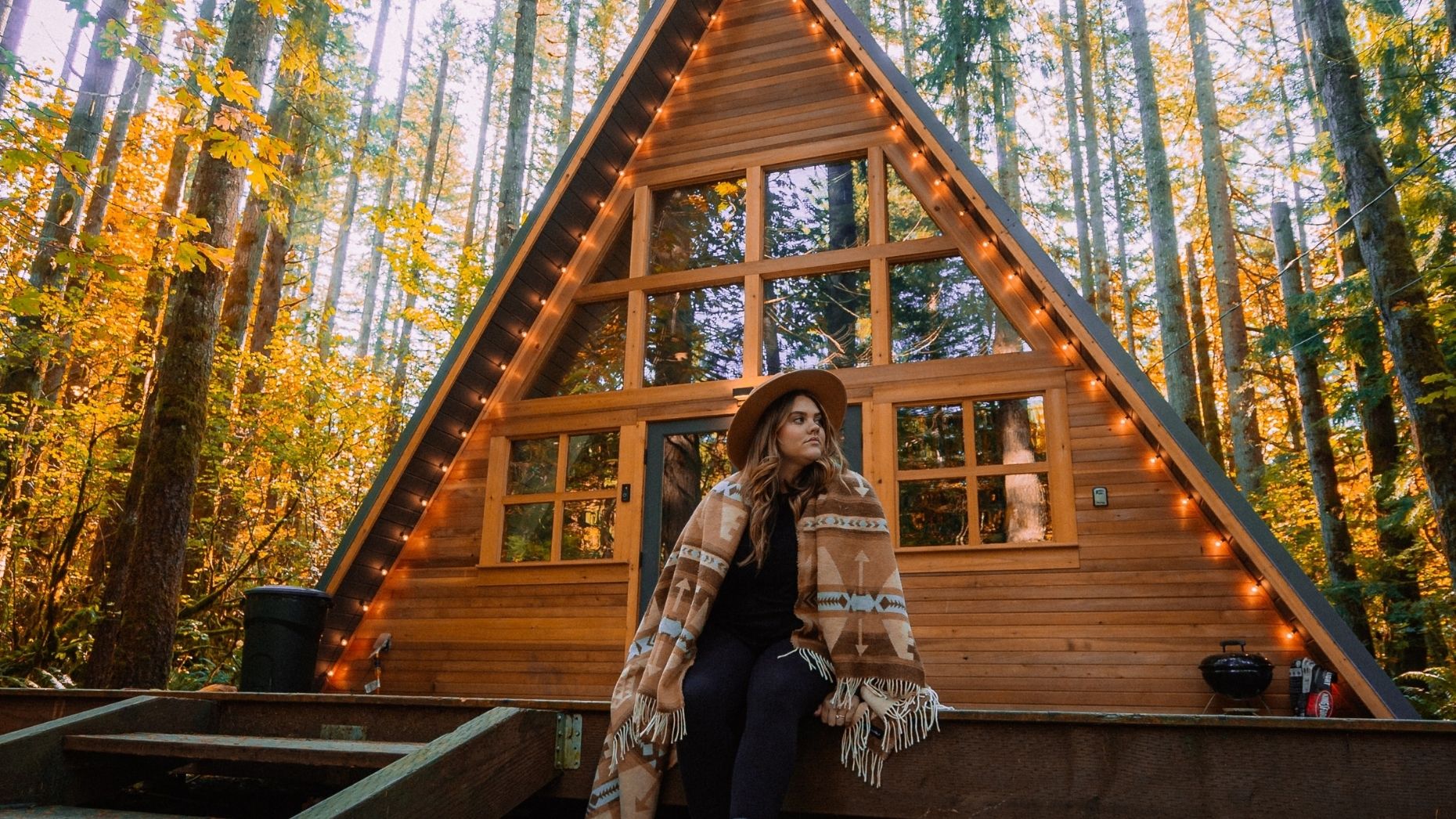In these times, double down — on your skills, on your knowledge, on you. Join us Aug. 8-10 at Inman Connect Las Vegas to lean into the shift and learn from the best. Get your ticket now for the best price.
When Gregory Macfarlane was looking for a place to stay for one night during a trip to coastal North Carolina, he turned to the king of short-term rentals.
The assistant professor of engineering from Provo, Utah, took a look at Airbnb first, hoping to find a cool home where he and his wife could walk into town for dinner while on vacation.
After a search, he found a condo listed for $120 for the night. But that was before moving on to the checkout page.
“The cleaning fee made it $200,” Macfarlane said. “The $150 Fairfield Inn on the outskirts of town suddenly looked a lot better.”
That same situation plays out daily on the Airbnb website, drawing gripes online and, more importantly, peeling off customers integral to the company’s bottom line. On average, it now costs $168 a night to rent an Airbnb, before taxes and fees. That’s up 49 percent from just before the coronavirus pandemic.
Heading into the busy travel season, the short-term rental behemoth is zeroing in on a paradox that might prove critical to its short- and long-term success: Airbnb needs to be seen as an affordable option for travelers while also being attractive to investors who supply the houses fueling the $67 billion platform.
Over the past year, Airbnb has been thriving, buoyed in part by rising nightly rates and an increased appetite for travel following two years of softened demand owing to the pandemic. It posted its first profitable year in 2022 after earning $8.4 billion in revenue.
Nonetheless, the company see this as the right time to zero in on the price of staying in an Airbnb as an attempt to provide something for every traveler and gain market share.
That means walking a fine line between appeasing the hosts who provide supply to the platform and guests who bring the demand. Both bring revenue to the company.
“They’re a broker. They represent both sides of the deal,” said Mark Mancini, a short-term rental investor in Florida who rents his home on Airbnb. “It’s my house and I want to protect it. They’re just trying to protect the consumer.”
The company has been making changes it hopes will be valued by both travelers and hosts to keep both parties coming to Airbnb instead of Vrbo, Vacasa or a hotel.
“While the hotel CEOs have said they expect demand to drive prices up this summer, we want to actually have prices moderate,” CEO Brian Chesky said in a recent call with investors. “We think that’s going to bring in a whole new generation of travelers to Airbnb.”
A return to the original
One way the short-term rental behemoth is moderating prices is by narrowing in on what Chesky described as a return to “the original Airbnb.”
When Airbnb was founded in 2008, it was set up as a way to rent extra space in a home to earn some extra income.
But Chesky recently pointed out that the travel industry is comparable to the size of the oil industry, and the company eventually grew to facilitate stays at everything from storage units to private islands that rent for $69,000 a night.
The company does seasonal feature updates and releases. During the summer 2023 release, Airbnb put a bright spotlight on a new category it’s calling Airbnb Rooms.
“It’s the core original product that Airbnb offered,” Jay Carney, global head of policy and communications at Airbnb, told Inman. “A private room was the first offering that Brian and his roommates had way back when in the early years of the company.”
Go to Airbnb today and the first thing visitors will see is a pop-up screen feeding them information about Airbnb Rooms.
Rooms cost $60 to $80 less per night than the typical one-bedroom whole rental, according to short-term rental data firm AirDNA.
To ease concerns about sharing four walls with someone they don’t know, Airbnb created what is called the Host Passport, or essentially information for guests to learn a bit about the backgrounds and personalities of the strangers they could stay with.
“This launch was timed with coming out of COVID, and the fact that people were returning to cities,” Carney said. “Private rooms are often a great way to see a city.”
It’s also a strategic move in the short term as travelers look to travel on a budget while the world seems to teeter on a possible recession.
In the long term, Chesky hopes to cement Airbnb as a go-to for Gen Z travelers who don’t have money to stay in a home or hotel. That meant highlighting the approximately 1 million cheaper options on the platform in the form of rooms.
“It’s partly why we’re so bullish about the prospect for Airbnb Rooms, not just to bring people to Airbnb that want affordable options, but really new travelers that have never really traveled very much before, especially Gen Z,” Chesky said in a recent call with investors.
Winning more market share means taking on another behemoth in the travel industry: Hotels.
Competing with hotels
The changes come at a time when average daily rates have continued rising after a rapid climb during a spike in travel demand brought on by COVID-19.
They also come as Airbnb fights tooth-and-nail for a share of the $1.9 trillion travel and tourism industry. Competitors don’t just include other short-term rental companies. They include the Fairfield Inn which looked like a better value to people like Macfarlane, who saved over Airbnb after accounting for additional fees.
Research provided by AirDNA found that short-term rentals were cheaper in coastal resort towns and big cities.
But they were more expensive in mountain and lake resort towns, suburbs, mid-sized cities and rural areas, according to AirDNA. The analysis looked at the price of one-bedroom homes and studios.
On average, the cost of booking a hotel was $158 a night, according to travel data firm STR. That’s up about 45 percent from the end of 2019 when a typical U.S. hotel stay cost $109 a night.
The price of an Airbnb, meanwhile, grew from $113 in the fourth quarter of 2019 to $168 in the first three months of this year, a 49 percent rise.
Airbnb says it’s the better option for families, saying would-be guests can rent a two-bedroom home for about the same price as a hotel room at a major chain.
That was the case for Braxton Thornley, a teacher who was planning his summer vacation to Rocky Mountain National Park in Colorado.
“Most of the time we’ll stay in a hotel,” Thornley said. “But when we’re bringing our daughter along we like for her to have a separate room. Mostly because she goes to bed really early.”
He has found that the short-term rental is typically less expensive when he needs more than one room.
“Single hotel room is going to be cheaper than most Airbnb’s in my experience,” he added.
Prioritizing value
The company has made other changes recently, including updating its search function to prioritize listings that previous guests have deemed to be a good value for the price.
The company also added a feature that lets travelers see the all-in cost — except for taxes — of their Airbnb options while searching, and it gave hosts more tools to see the total cost guests would pay while staying at their properties.
The goal, Chesky said recently, is affordability.
“The more affordable we are — just like Amazon — the more affordable we are with the wider selection, the more people will come to Airbnb,” Chesky said.
Some short-term rental investors at the time saw the comments as an attempt to get hosts to compete with each other by lowering their prices.
“Airbnb earnings call is bad news for hosts,” Mark Jenney, a short-term rental investor, wrote on Twitter last fall when the changes were first announced. “Airbnb wants hosts to have a race to the bottom with pricing. This is good for Airbnb because conversions and bookings will increase.”
The company has also been zeroing in on the cleaning fees hosts charge, along with the requests for guests to tidy or clean homes before checking out.
Hosts respond
After 2021 and 2022, when folks were earning significant amounts of money hosting on Airbnb, even after paying the company’s 3 percent fee for the stay, new hosts face an era when the company is actively trying to moderate prices while the cost of buying a home is high.
While there are full-time investors who make a living buying properties and renting them on a short-term basis, amateurs face the reality of losing money rather than making it on Airbnb.
Troy Palmquist, founder of DOORA Properties and an Inman contributor, bought and renovated a cabin near Big Bear, California, as a vacation home. He hoped to offset the cost by renting it out part-time on Airbnb, but a series of weather-related setbacks and a drop in demand in the market has him looking to sell the cabin.
“When you’re buying and purchasing an Airbnb, make sure that you’re not doing it necessarily as a solid stream of income,” said Palmquist, “or to fully offset the property.”
Others are looking to avoid paying fees to the company — and avoid possible vulnerability to changes on the platform — by attracting guests directly to their own booking sites.
“When I got the last two properties I bought my focus was on direct,” said Mancini, the investor in Florida. “I enjoy getting bookings from Airbnb I just choose not to rely on them.”
Allen Meringolo, an investor in New Hampshire, said that hosts have benefitted from Airbnb’s growth as the company has far surpassed the size of the older Vrbo.
Still, he’s keeping an eye on changes at the company and moving toward a more conservative stance.
“I still think the value proposition for Airbnb to new hosts is incredible. Post a property and immediately start collecting $1000s in revenue,” Meringolo said. “But as I continue to build a business, their overall policy direction increases the urgency I feel to build a brand and direct booking funnel and hedge platform risk.”
Get Inman’s Property Portfolio Newsletter delivered right to your inbox. A weekly roundup of news that real estate investors need to stay on top, delivered every Tuesday. Click here to subscribe.


















